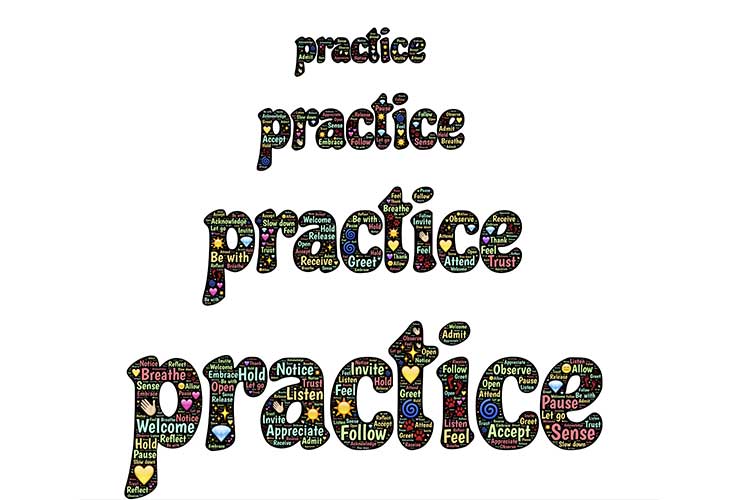
IMPRŏV-able Results Blog!
Let me know what articles you find particularly helpful and what else you would like to read about.
Contact me at sandy@improv-ableresults.com, 206-351-5899, or click Contact.

You’ve heard the phrase “practice makes perfect.” Is it true? That depends on what you mean by “perfect.” You get better and better at doing what you practice – but are you practicing doing the right thing? Is the result what you really want? A better phrase is “practice makes permanent.” Practicing bad habits will only reinforce them. Is that what you want?
There’s a related phrase: “If you always do what you always do, you’ll always get what you always get.” So, it’s important to look at what you actually want to improve and what that would look like in action and end results. You might have to change your practice in order to get better results.
Identify and practice actions that get you closer and closer to your target. What good habits do you want to reinforce through awareness and repetition? “Practice makes permanent,” so be sure you’re practicing the right actions from the start.
For instance, if you want to be more patient and stop yelling at people when you’re frustrated or mad, you’ll have to change your response when you feel like yelling. The more you allow yourself to yell “just this time,” the more automatic becomes the negative response. Practice makes permanent. Success requires deliberate and consistent practice doing the right thing.
Another for instance, if you want to become a better public speaker, practice doing the right things. The more you allow yourself to write out a script word-for-word, read it aloud at a lectern so there is no stumbling over the words, and even memorize large bits or the entire piece, the more automatic becomes this failure-waiting-to-happen.
Writing out a script word-for-word ties you to it. You wind up reading it, or sounding like you’re reading it if you try to speak it from memory. Reading sounds boring. Memory fails us often, especially under pressure. If the audience gets bored and loses interest, they could tune out or leave, wishing you’d saved them time by emailing them the script.
Success requires deliberate and consistent practice doing what develops good speakers:
- Walk around and tell your audience (pretend at first) what you have to say
- Bullet-point your talking points on a small index card
- Repeat and revise your talking points and stories
- Resist reading and memorizing and hiding behind a lectern
- Practice before real and supportive people in spaces similar to the venue
- Support your talk with appropriate (not random) gestures and make frequent eye contact
Decide upon what you want to improve. Simulate real situations and find opportunities to practice. Consider getting a trainer or coach to see what you aren’t seeing and give you feedback and guidance. Instead of responding automatically with self-defeating behavior, you’ll develop and improve your approach consistently, making good habits more perfect and permanent.